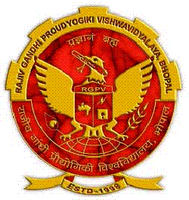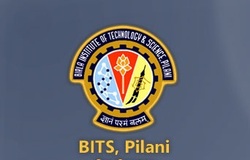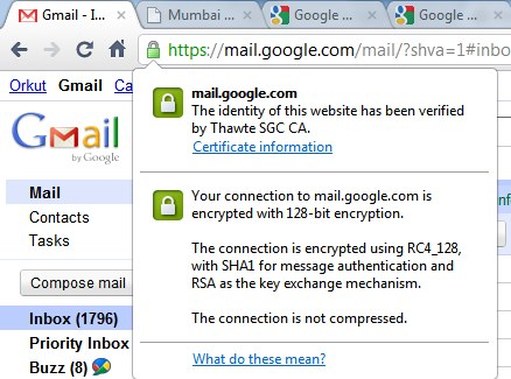 hi bloggers....
If you think that Facebook eats up most of your time, then it's only going to get worse, suggests a new study.
Researchers at City University of Hong Kong have suggested that users become more active in online social networks as they grow bigger, reports New Scientist.
The researchers considered behaviour in two online networks: the Chinese blogging site Sina and a peer-to-peer file-sharing system called Tianwang.
By comparing the growth of these networks with user activity, they managed to settle a long-standing argument.
There are two competing schools of thought when it comes to the growth of online social networks. One suggests that networks grow in a linear fashion: in other words, the activity of each user doesn't change much and so network activity grows in proportion with the number of users.
However, the second theory suggests that network growth is non-linear: as a network grows in size, users also use it more, causing total network activity to increase far more quickly than the linear model would predict.
The study results support the non-linear hypothesis, as the researchers observed that both blogging and peer-to-peer file-sharing sites see users becoming far more active on the networks the larger they get.
In the case of the peer-to-peer network, the team found that if the number of users doubled, their activity rose by a factor of 3.16. They also discovered that the bigger the inequality in activity between users, the quicker the network would grow.
"It makes sense that the total activity in a social system would be non-linear, because in a social system, the more people there are, the more things there are to do," said Mike Thelwall, of the University of Wolverhampton, UK.
"This would probably transfer to Facebook and Twitter, too. You might start to rely on Facebook or Twitter if a high proportion of your friends were on them," said Thelwall.
The team has also found that the increased activity follows a pattern known as a time-invariant power law-one of the upshots of which is that all users tend to become more active in the network. So there's no point deluding yourself: Facebook definitely is sucking up more of your time than ever before.
 hi bloggers.....
A newer version of Google can now solve the math puzzle Sudoku no matter how difficult it is.
A newly updated mobile phone application, called Google Goggles, uses a phone’s camera to capture a picture of any Sudoku puzzle and then sends it back to Google.
The servers at Google compute the answer and send back the image to the user.
Phil McNeill, the Daily Telegraph’s puzzles editor said the move was “a sad day” for puzzle fans.
“When you finally solve a real mind-bender, it brings a rush of achievement. I hope Google's new tool won't diminish that feeling,” the Telegraph quoted him as saying.
The application’s main function, however, is for price comparison information and general web searching.
Goggles is available on the iPhone and all Google Android phones.
 hi bloggers.....
Experts have suggested that NASA must touch on the topic of space sex.
According to them, there haven't been any studies on whether a child be conceived in zero-G or how sex would even work in space.
Dr Rhawn Joseph from the Brain Research Laboratory in California discusses everything from the social conditions that would push astronauts to have sex to the possibility of the first child being born on another planet.
"Human beings are sexual. They think about it a lot. So if you're on a trip to Mars, it's going to be dark out, you'll be in a long period of isolation, and there's not going to be a lot to do," Fox News quoted him as saying.
"There's a definite possibility that it could happen."
Joseph added that on the long space journeys that NASA takes, it would be impossible to expect astronauts not to form emotional ties.
"The Antarctic is comparable to space: It's extremely cold down there and you spend a lot of time indoors. So NASA and lot of organisations think that's a great analog to what it'll be like on Mars," Joseph said.
"And we see that researchers will go down there for extended periods of time in these extremely hostile conditions, and women will get pregnant. It's just part of normal behaviour," he added.
"So if you put an infant on Mars, they would adapt to varying degrees of the new environment. And after several generations, you'd have a new species," he said.
NASA does not take a position on sex in space. According to the "Astronaut Code of Professional Responsibility," astronauts are expected to adhere to "a constant commitment to honorable behavior," but NASA won't go much further than that.
Michael Finneran, a spokesman for NASA Langley Research Center, said, "Since it's not a NASA publication, and NASA is not currently engaged in any initiatives to colonise Mars, and NASA's not conducting any research on sex or reproduction in space or on Mars, we are unable to provide a comment on the matter."
"Send husbands and wives into space to have sex and do studies on it. It's got to be done if the long range goal is to go to other planets. Science marches on," Joseph concluded.
The article appears in The Journal of Cosmology.
 hi bloggers....
A new study by US scientists has revealed that the amount of dust in the Earth's atmosphere has doubled over the last century.
And researchers believe that the increase could be a contributing factor to climate and ecology changes around the world.
To measure fluctuations in desert dust over the last century, lead scientist Natalie Mahowald and colleagues collected existing data from ice cores, lake sediment and coral, each of which contains information about past concentrations of desert dust in the region.
They then linked each sample with its likely source region and calculated the rate of dust deposition over time.
Applying components of a computer modelling system known as the Community Climate System Model, the researchers reconstructed the influence of desert dust on temperature, precipitation, ocean iron deposition and terrestrial carbon uptake over time.
They found that regional changes in temperature and precipitation caused a global reduction in terrestrial carbon uptake of six parts per million (ppm) over the 20th century.
The model also showed that dust deposited in oceans increased carbon uptake from the atmosphere by 6%, or 4ppm, over the same time period.
While the majority of research related to aerosol impacts on climate is focused on anthropogenic aerosols - those directly emitted by humans through combustion - Mahowald said that the study highlights the important role of natural aerosols as well.
"Now we finally have some information on how the desert dust is fluctuating. This has a really big impact for the understanding of climate sensitivity," the Daily Mail quoted her as telling Science Daily.
 Hi bloggers.....
IPSCTM - Official blog wishes you a very happy and prosperous new year.
keep blogging :)
 hi bloggers....I'm sure you must have come across the BlackBerry encryption/Indian government issue in the past. As of now, BlackBerry maker RIM has till January 31, 2011 to hand over the encryption keys to intelligence agencies - keys that protect the content (like e-mail or chat) of millions of BlackBerry users in the country.
It seems that the Indian Government is training its eyes on all other forms of electronic communication that cannot pass through their radar. Google's popular e-mail service - Gmail - happens to be one of these. But as The Economic Times reports, Google's already given its verdict on the matter even before the government asking them anything. Google Inc. will not share the encryption keys of its email service with the Indian security agency, for reasons of compromising the privacy of millions of Gmail users worldwide. Google India chief Vinay Goel was speaking on the matter, "If requested, it would be impossible to offer real-time access since the Gmail service is governed by US laws. When users entrust their data with us, we are expected to protect it, which is why, user privacy is very important for Google".
But it isn't like Google is going to be completely turning a deaf ear for the call of the nation's security. Vinay said that they're open to offering the Indian government access if there's a large-scale risk to human life and property. But it makes me wonder whether the government would find this arrangement acceptable, since such a situation is not going to invite itself before coming, thus needing the government to monitor it all the time.
So, why is the government having such a hard time with security? As the ET write-up suggests, they don't have the technical resources to intercept communication on the internet that is protected by high levels of encryption. It also sounds pretty strange that the government actually asked Indian ISPs to tone down their encryption levels for them to monitor systems in the country.
This seems like a rather complex problem where you have companies that aren't willing to compromise on the privacy of their users that they swear to protect, versus the need for monitoring all possible forms of communication that some might use against the safety of the nation. What if the government does ask Google for access to their encryption keys for Gmail? Will they ban the popular mail service if they don't comply?
hi bloggers....
It’s not only raining jobs at the IITs but also at regional colleges. S M Gupta and his placement team at the National Institute of Technology (NIT) Kurukshetra, Haryana, have created a record of sorts.For the first time in over a decade, the institute had 115 companies on campus for placement. Till 2008, the company had been receiving only around 70 companies.
Similarly, TCS offered jobs to 1,091 students from Tamil Nadu-based SRM University. This, against 350 offers that TCS made to students last year.
At the Malaviya National Institute of Technology, Jaipur in Rajasthan, 350 students are placed against a batch size of 450 students. Here again, IT companies including Infosys Technologies and Accenture have indicated recruitment of 50 students each.
The rush to hire students from campuses validates that the business which was impacted during the slowdown is picking up fast. TCS after its second quarter results for financial year 2010 had announced that it will give offer letters to 30,000 student at campuses for fiscal 2011-12. This is 50 per cent more than what the firm had offered in the current fiscal.
Joining the bandwagon is India’s third largest IT services firm Bangalore-based Wipro which offered jobs to 406 students at SRM University. Last year Wipro offered jobs to about 300 students. Similarly, Delhi-based HCL visited SRM University to pick up 235 students against 95 students that it picked up last year.
For instance, Cognizant has hired students at an annual pay package of Rs 3 lakh from VIT University. While TCS would be paying an annual salary of Rs 3.19 lakh to B Tech students, M Tech students will get Rs 3.5 lakh and MBA students will get Rs 4.7 lakh per annum.
At IIT-Kharagpur however, social networking firm Facebook has offered a Rs 70 lakh annual package. At VIT University, Amazon would pay its only recruit an annual package of Rs 9.5 lakh.
Most of the large IT services firm visit the campuses only during the eighth semester, in compliance with Nasscom’s guidelines.
Source: The Times of India
hi bloggers....
The once-and-again CEO of Apple, Steve Jobs has spearheaded a few of the most iconic products in technology, entertainment and design. Seriously a must watch......
 !!!! NOTICE !!!!
According to the new norms of R.G.P.V., all the Final year students have to take the hard copies of their "Admit Cards" from rgpv.ac.in to the colg and get it registered there.
for more info contact : Kapil Keswani
 hi bloggers.......
Schlumberger, the world's leading supplier of technology, integrated project management and information solutions to customers working in the oil and gas, has offered job postings abroad to eight students of BITS - Pilnai with a compensation Rs 40 lakhs/annum. Another company Facebook, the largest social networking website is expected to hire few more students with an annual package of Rs 38.5 lakhs/annum.
Of 400 students in first semester of batch 2011 in both undergraduate and postgraduate programmes, 300 students have already been placed in renowned companies. The highest domestic package has touched Rs 12.8 lakh for job posting in India by D E Shaw, a global investment and technology company based in New York.
The chief placement coordinator of BITS - Pilani, Mani Shankar Dasgupta said, " There is a good mix of national and international companies which placed our students in India." He admitted that attracting these big companies wouldn't have been possible without the support of the alumni who have wide network among companies.
So far, 55 companies have registered in Pilani for recruitment, which has surpassed all technical education institutes in the state. The authorities are hoping that by the end of November 2010 they will achieve 100% placements. "Over 20 more companies are lined-up to visit the campus in this session," added Dasgupta.
About Birla Institute of Technology & Science (BITS) Pilani
The Birla Institute of Technology & Science (BITS), Pilani is an all-India Institute for higher education. The primary motive of BITS is to "train young men and women able and eager to create and put into action such ideas, methods, techniques and information". The Institute is a dream come true of its founder late Mr G.D.Birla - an eminent industrialist, a participant in Indian freedom struggle and a close associate of the Father of Indian Nation late Mr. Mohandas Karamchand Gandhi (Mahatma Gandhi).
Over the years, BITS has provided the highest quality technical education to students from all over India admitted on the basis of merit. Its graduates may be found throughout the world in all areas of engineering, science and commerce. BITS symbolizes the maturing of Indian technical ability and "can-do" entrepreneurial spirit, especially as derived from the private sector. BITS is located in the Vidya Vihar campus adjacent to the town of Pilani in Rajasthan.
|












 RSS Feed
RSS Feed